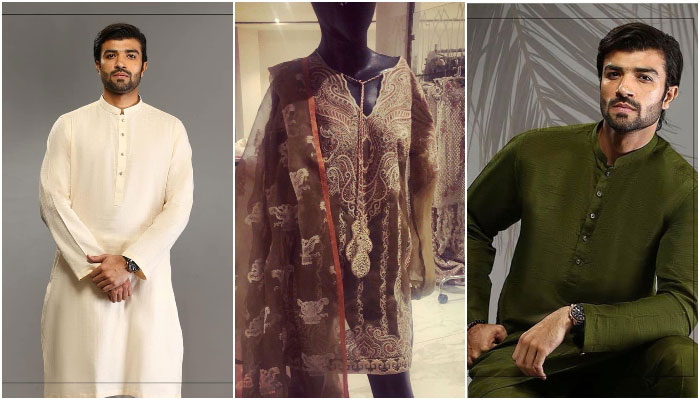Pakistani brands eye UK market as recession looms at home
Fashion industry insiders say consumer behaviour and patterns have evolved in response to the coronavirus pandemic
June 15, 2020

LONDON: Pakistani fashion brands are eyeing markets in UK as fears of a major recession loom at home.
Despite the severe contraction of the Pakistani economy due to excessive borrowing and the coronavirus pandemic, fashion entrepreneurs in Pakistan are using online sales, e-commerce stores and other technological advancements to capture a slice of the UK market.
According to fashion industry insiders, consumer behaviour and patterns have evolved in response to the pandemic. Customers are more aware of the dangers of physical shopping and prefer instead to shop online. This has forced luxury fashion brands to digitise and focus on online sales which have opened the global market to them.
Due to the economic crisis in Pakistan and the rising value of the British pound against the Pakistani rupee, many fashion brands are choosing to focus more on international sales in the UK and Europe as consumer demands in Pakistan wanes.
In an exclusive conversation with Geo News, menswear designer and creative director of Rici Melion, Noaman Zakir explained how the pandemic had opened doors to the UK and Europe market for Pakistani brands.
"We have a huge clientele in the UK & Europe with customers ordering our ready to wear suits the most. In Pakistan, summers are usually lean months but despite the pandemic, we have had many orders from the UK through our website,” Zakir said.
He added, "Pakistani designers have to hit on both the national and international fronts this year if they want to thrive in this hugely competitive market."
The designer explained how the pandemic had forced fashion brands to improve their ability to sell fashion items online whether it was in the realm of sizing or delivery.
Couturier Amina Naeem explained how the pandemic had greatly disrupted the fashion industry of Pakistan. "With COVID-19 hitting globally, the fashion fraternity and couture houses have been drastically affected, including design houses being closed and runway shows postponed.”
"Consumers now want to buy something that holds sentimental value, lasts longer and is designed with intricately handcrafted finesse," she added.
Fashion veteran and bridal couturier, Sonia Azhar who regularly stocks at multi-brand stores in the UK told Geo News: “People are going for lighter clothes with lower budgets because weddings are becoming more of an intimate nature. Fashion is evolving globally and the distinctions between the preferences of foreign and local clients are getting blurred."
Azhar who has held multiple fashion shows in London and Glasgow, mentioned how designers had to focus on international sales if they wanted to have a global presence.
"The world is our oyster now. We are no longer dependent on local sales since enhanced distribution systems have allowed selling worldwide," the designer added.
Mehak Adil, who graduated from the UK to start her own fashion brand mentioned how consumer demand in Pakistan was waning.
Adil told Geo News the spring season up until Eid is the peak season for designers. “Consumer demand is high in Ramadan but since coronavirus was at its peak, people were not comfortable shopping anymore. However, international orders are still being placed," she said.
"Besides, online retail is picking up and we do see more people using online services but it’s still limited and overall we can see there is a weaker demand from consumers as their consumption patterns recede," she added.
Pakistani fashion brands have been welcomed in the UK with the country providing a strong market for traditional eastern wear. The lack of traditional fashion brands in the UK has further uplifted the demand for the products produced by Pakistani fashion brands but according to industry insiders, there is still a long way to go for brands to develop systems which enable them to sell huge quantities of traditional apparel in the UK and Europe.











